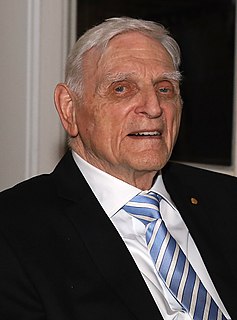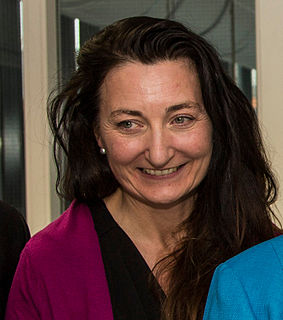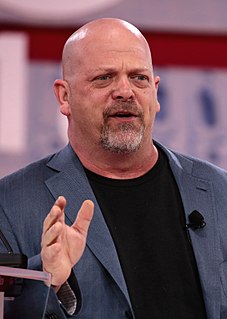A Quote by John B. Goodenough
I go to the lab and in order to interact with my postdoctoral students and try to see if I can shape them to not copy but to ask questions and to think. We have to have a little dialogue because you don't pretend to be the fountain of all wisdom.
Related Quotes
Whenever I'm giving talks, I always ask people to think of the most obscure questions because I enjoy those the most. I always get the same questions: Why does Pickwick say "plock" and will there be a movie? I like the really obscure questions because there's so much in the books. There are tons and tons of references and I like when people get the little ones and ask me about them. It's good for the audience [and also] they realize there's more there.
Every man, every woman who has to take up the service of government, must ask themselves two questions: ‘Do I love my people in order to serve them better? Am I humble and do I listen to everybody, to diverse opinions in order to choose the best path.’ If you don’t ask those questions, your governance will not be good.
Every man, every woman who has to take up the service of government, must ask themselves two questions: 'Do I love my people in order to serve them better? Am I humble and do I listen to everybody, to diverse opinions in order to choose the best path?' If you don't ask those questions, your governance will not be good.
I try to encourage people to think for themselves, to question standard assumptions... Don't take assumptions for granted. Begin by taking a skeptical attitude toward anything that is conventional wisdom. Make it justify itself. It usually can't. Be willing to ask questions about what is taken for granted. Try to think things through for yourself.
Are our ways of teaching students to ask some questions always correlative with our ways of teaching them not to ask - indeed, to be unconscious of - others? Does the educational system exist in order to promulgate knowledge, or is its main function rather to universalize a society’s tacit agreement about what it has decided it does not and cannot know?




































